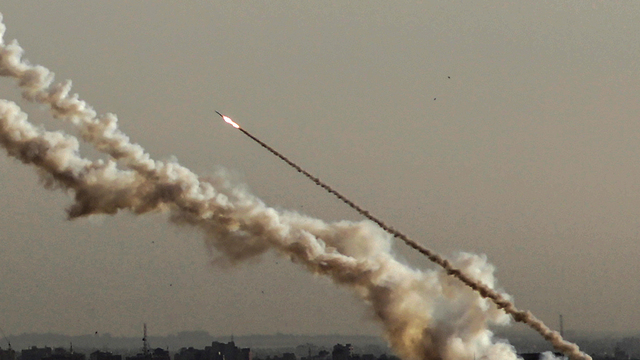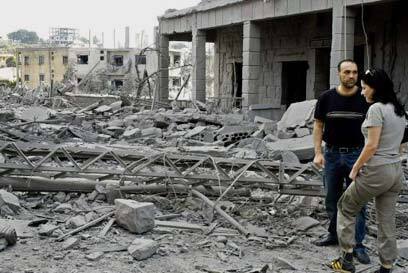The commotion created by IDF Chief Aviv Kochavi's warning about any renewed nuclear deal between the United States and Iran overshadowed the important message of deterrence contained in his speech - which is now gaining real significance in light of The Hague's decision on Israel.
According to Kochavi, the IDF will not hesitate to launch an attack in full force against any civilian neighborhoods, installations or even residences where unmanned missiles, rockets and aircraft are being stored or launched from.
6 View gallery
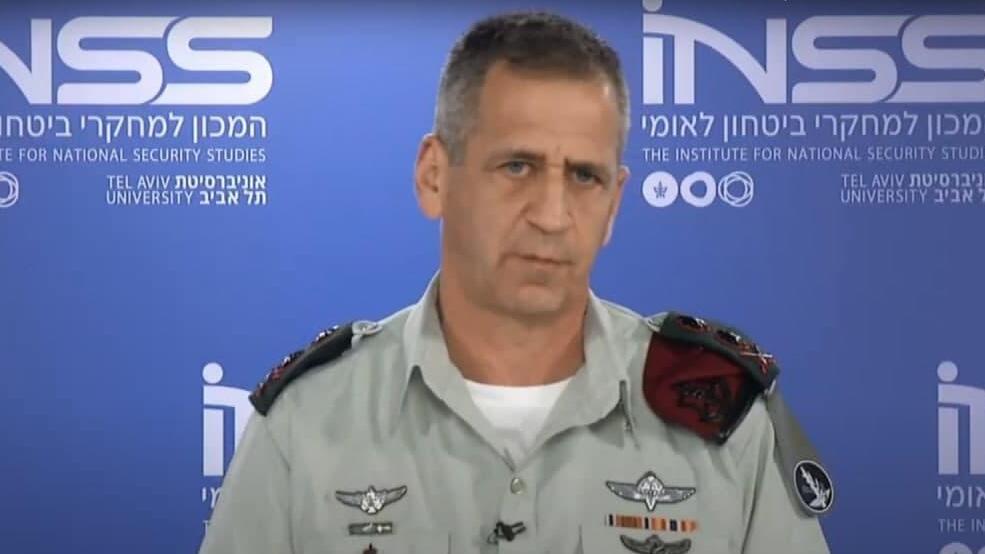

IDF Chief of Staff Aviv Kochavi delivers a warning to terror groups in an INSS speech last month
(Photo: INSS)
He was for the first time publicly revealing the IDF's latest strategy and operating method.
The IDF chief, who was speaking late last month at a conference held by the Institute for National Security Studies at Tel Aviv University, warned the leaders of Hezbollah, Hamas and Islamic Jihad that the next big confrontation will see the IDF use force to an extent that they (and indeed Israelis) have not yet seen.
He did however hasten to make it clear that the IDF would not violate the rules of international law as part of such an action.
Kochavi said that Lebanese and Gazan citizens in whose homes or immediate environs long-range weapons are hidden should evacuate as soon as a conflict or an escalation begins. He assured those civilians that the IDF would give them early warning and time to leave before unleashing any deadly force.
The explicit warning is there so that after the next confrontation, Israel can counter any demand to bring its military officers or politicians to trial by easily proving that the IDF warned civilians when possible - as is required by international law.
It is fair to assume that Kochavi actually made this statement during a period of calm, without any concrete context, as part of the next IDF campaign.
The need to issue a preemptive disclaimer stems from the unique threats faced by Israel civilians and the modus operandi of the terrorist organizations and their patrons.
6 View gallery
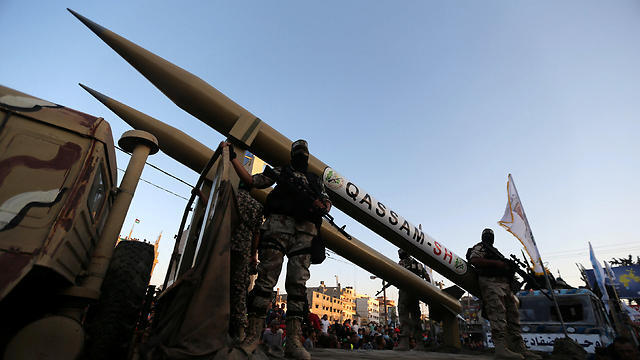

Gaza terror groups display the rockets that are planned to be fired at Israel
(Photo: Reuters/Archive)
There is no country in the world whose citizens are face a direct and deliberate threat from tens of thousands of large missiles (70,000 in Lebanon and 20,000 in Gaza).
Moreover, such a threat, which could lead to many losses and massive destruction, could materialize at any moment as a result of an escalation or deterioration that no one - even on the other side – had wanted.
The gravest issue, however, is the Hezbollah, Hamas and Islamic Jihad strategy of using the local civilian population as human shields.
These groups store, hide and launch missiles and rockets from or near the homes of uninvolved civilians. Schools are used as staging areas and warehouses and hospitals hide field commanders who fear they will be killed by Israel.
Most villages in southern Lebanon have been transformed into fortified complexes, while civilian infrastructure in Lebanon and Gaza, such as power plants, are directly and sometimes exclusively in the service of Hamas and Hezbollah attacks.
6 View gallery
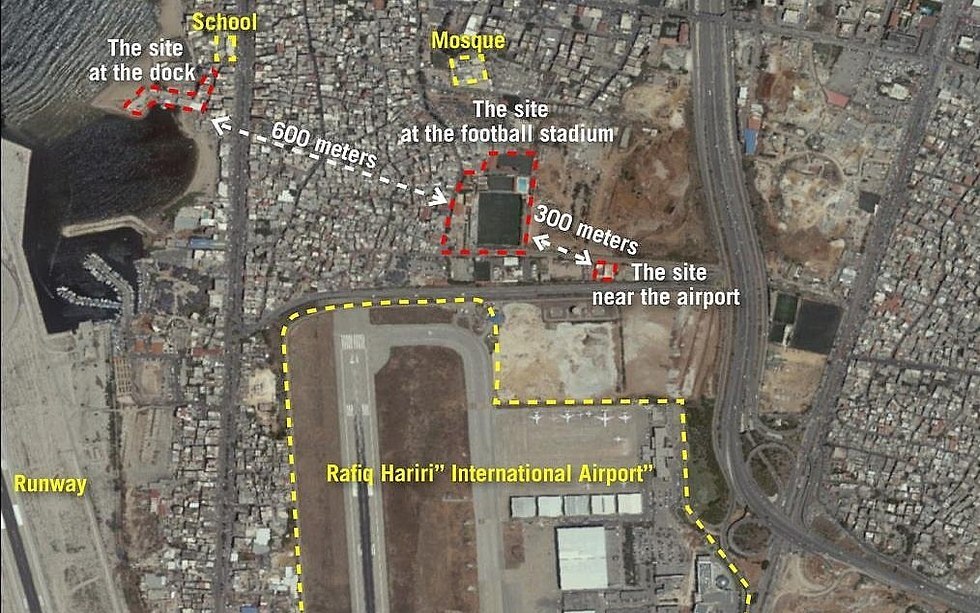

The IDF revealed Hezbollah's sites in Beirut civilian areas in 2018
(Photo: IDF Spokesman's Unit)
But when the IDF used strikes and ground forces against the source of such attacks in order to reduce losses and destruction in the Israeli home front, its commanders and ministers had to defend themselves against accusations of war crimes – as happened after the fighting in Jenin refugee camp during the Second Intifada and after the first Gaza war in winter 2008/9.
It should be noted that this criticism sometimes was based in fact, with injuries to civilians resulting from IDF error or miscalculation - as was the case in the bombing of the village of Qana in the Second Lebanon War – and which cause lasting damage on the international stage, even among Israel's allies.
The need for domestic and international legitimacy for military activity is not unique to Israel. It exists in all democracies - including the U.S., which has been flexing its military muscle abroad for decades.
This is why the battle for legitimacy has become an important component in all conflicts, with armies devoting considerable resources to public diplomacy.
Kochavi is trying to create a new paradigm, at least with regards to the unique legitimacy that the IDF requires to act against missiles placed in urban areas of Lebanon and Gaza.
His goal is to create moral and legal legitimacy both internationally and domestically for the IDF to exercise its full power - including new and deadly capabilities– anywhere, to any degree and as soon as the fighting begins.
But now the International Criminal Court has decided that it has the power to judge Israel on its actions in the Palestinian territories.
The decision is a momentous one, as it severely limits (if it is taken into account at all) the IDF's legitimacy in using force, especially in urban areas where Hezbollah and Hamas hide their missiles and rockets aimed at Israel's own civilians.
6 View gallery
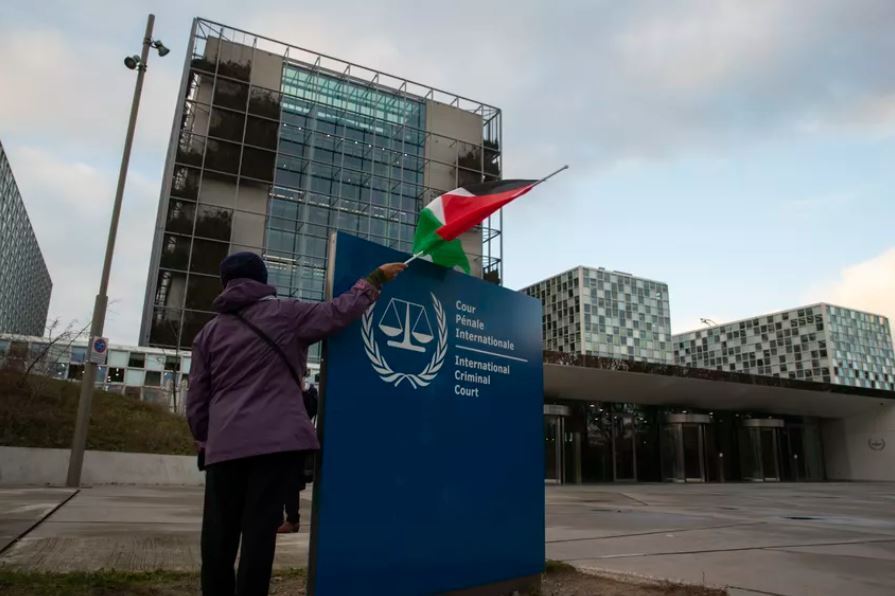

A demonstrator poses with a Palestinian flag outside the International Criminal Court at The Hague
(Photo: AP)
It equally limits the operational abilities of U.S. troops in Afghanistan and Iraq. As such the Biden administration was quick to condemn the decision in The Hague, even though Israel and the United States are not signatories to the Rome Statute, by virtue of which the tribunal operates.
Yet if the United Nations accepts Kochavi's philosophy on when it is legitimate to use force - based on quality intelligence and carried out using very precise armaments - Israel will be able to act in self-defense without its senior soldiers and politicians having to fear imprisonment in Europe.


